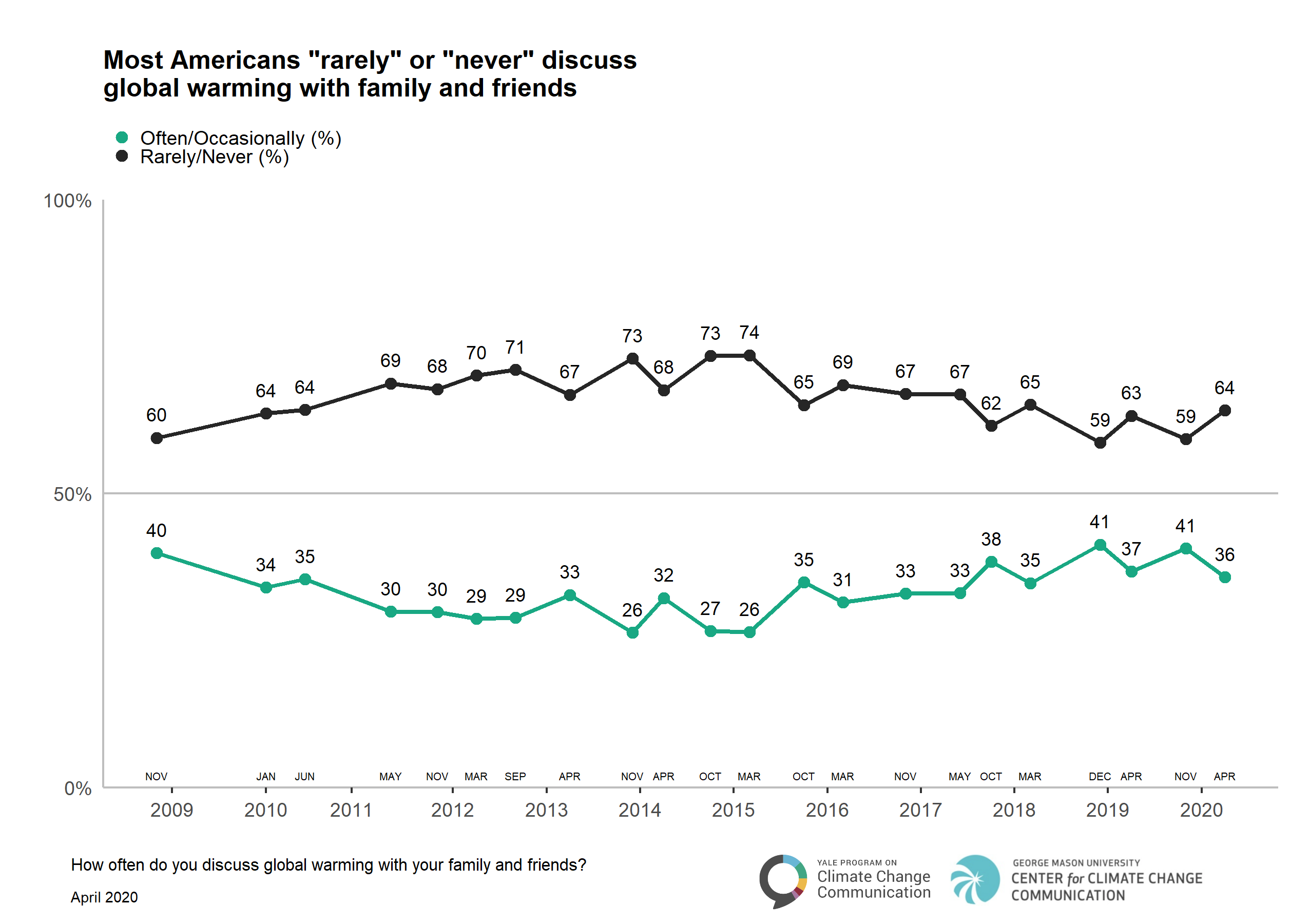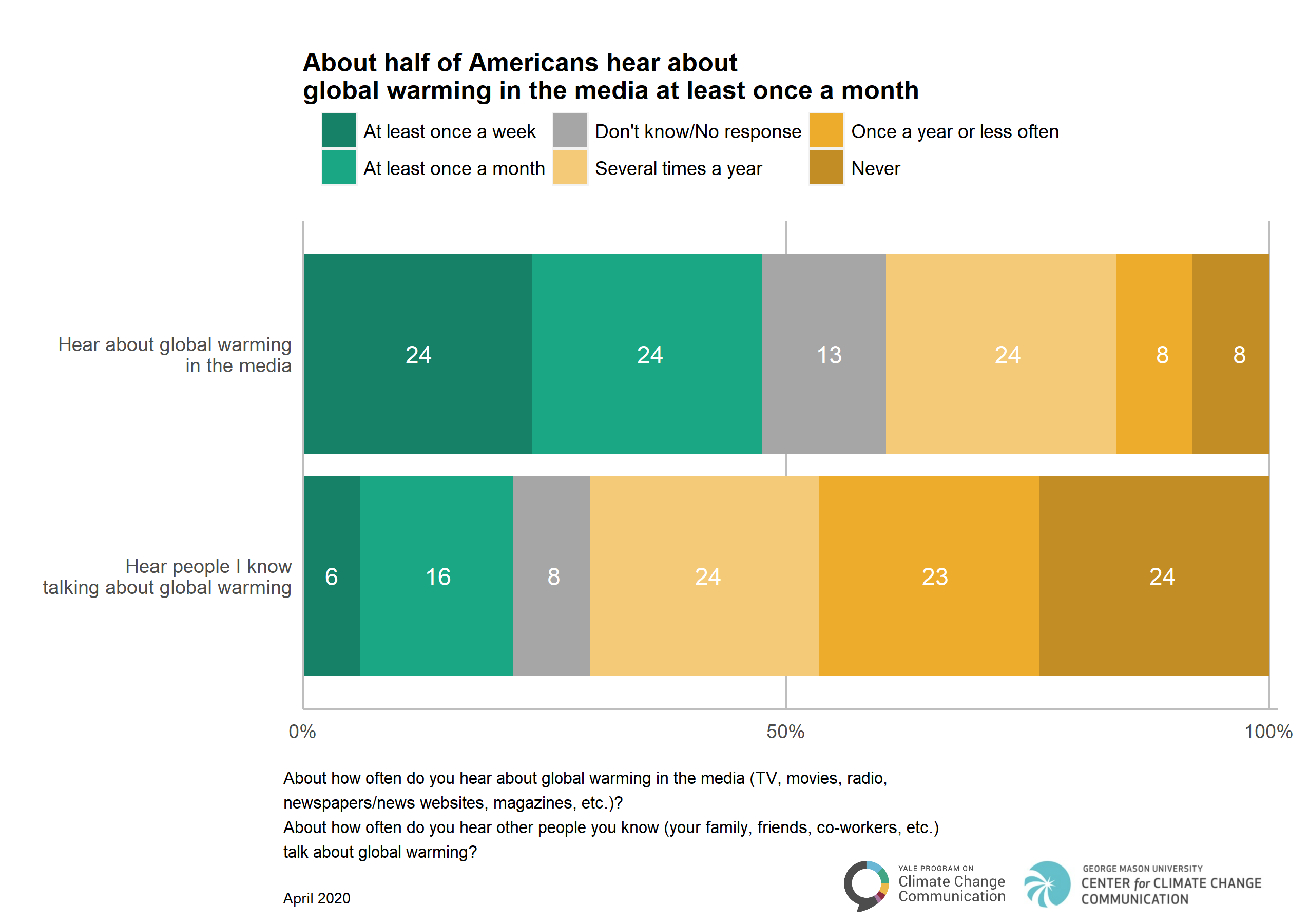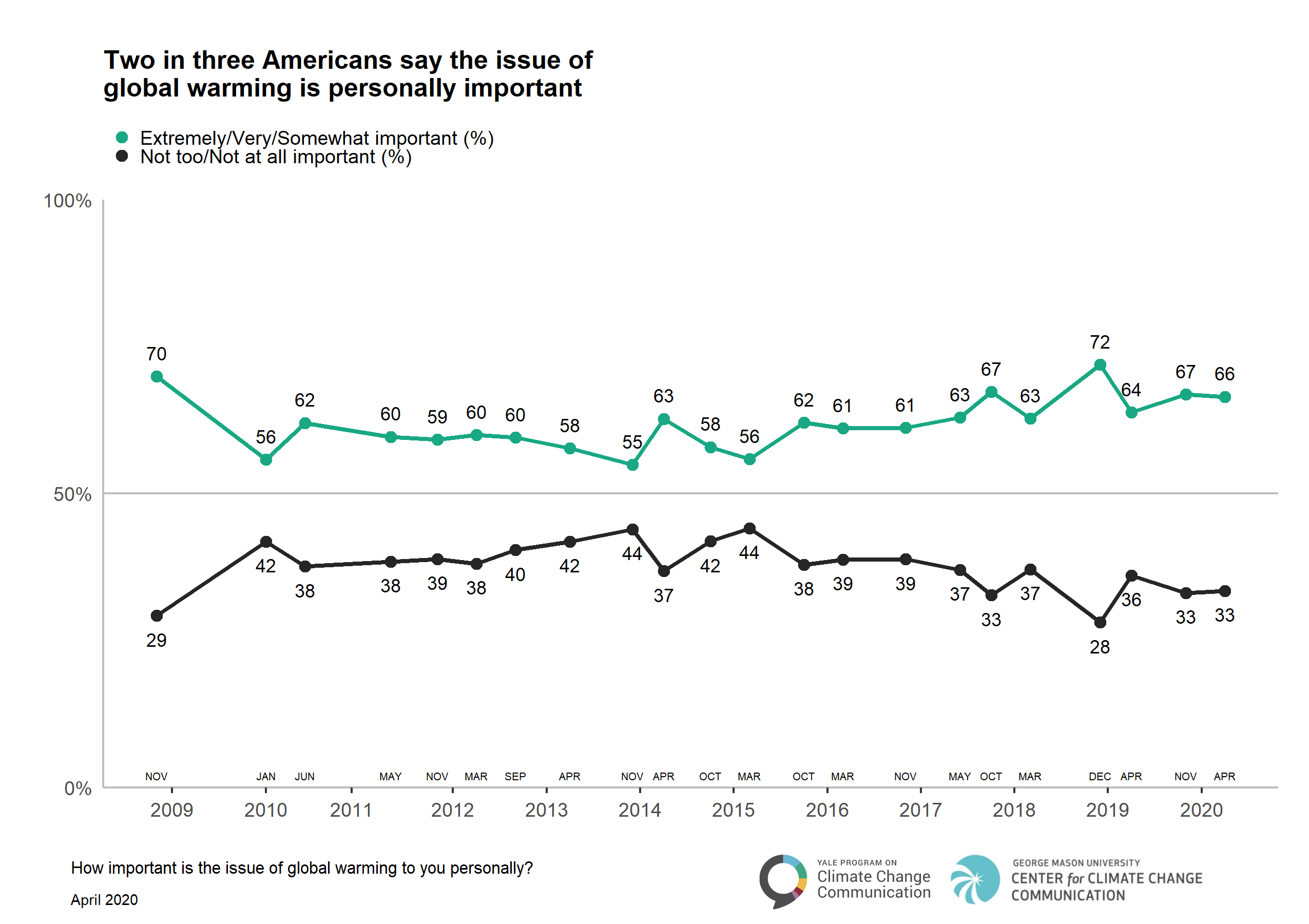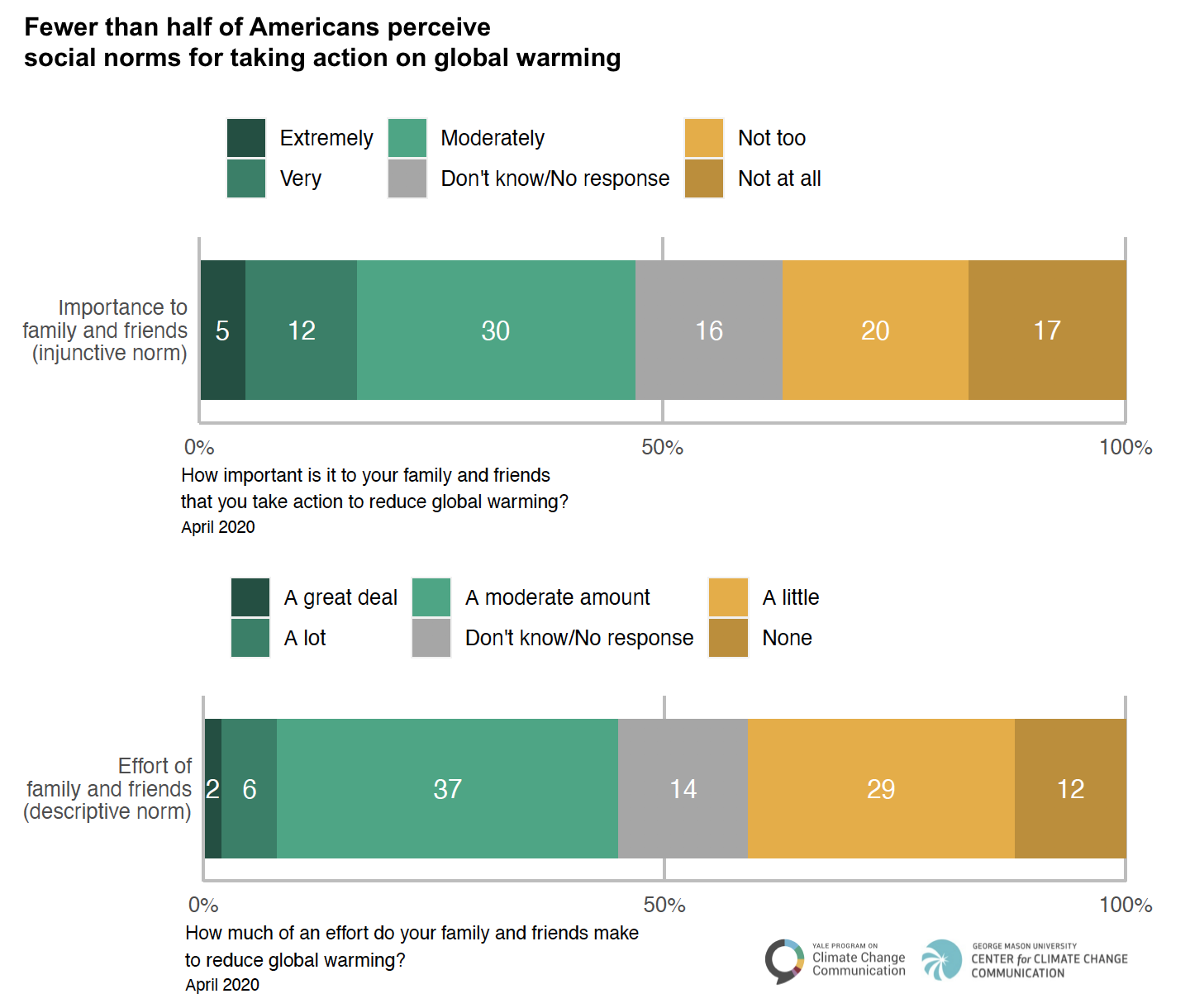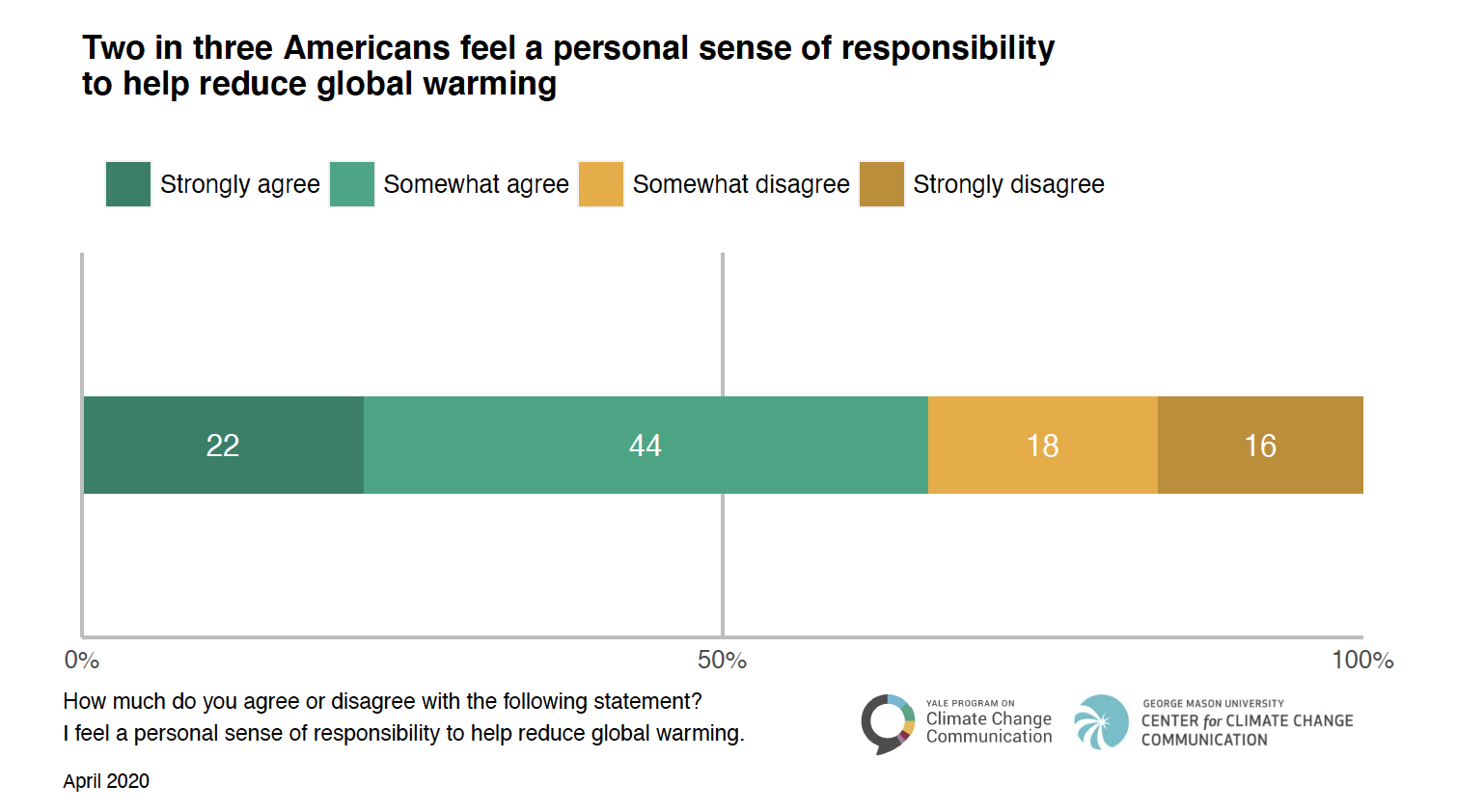Report · May 19, 2020
Climate Change in the American Mind: April 2020
By Anthony Leiserowitz, Edward Maibach, Seth Rosenthal, John Kotcher, Parrish Bergquist, Matthew Ballew, Matthew Goldberg, Abel Gustafson and Xinran Wang
Filed under: Beliefs & Attitudes
5. Personal and Social Engagement with Global Warming
5.1. Most Americans “rarely” or “never” discuss global warming with family and friends.
More than six in ten Americans (64%) say they “rarely” or “never” discuss global warming with family and friends. Fewer than four in ten (36%) say they discuss global warming “occasionally” or “often,” but that reflects a 10 percentage-point increase over the past five years (since our March 2015 survey).
5.2. About half of Americans hear about global warming in the media at least once a month; fewer hear people they know talking about it at least once a month.
About half of Americans (47%) say they hear about global warming in the media once a month or more frequently. This marks an increase of seven percentage points since we first asked the question five years ago (in March 2015), but a nine percentage-point decrease since our previous survey in November 2019 (see Data Tables in the report PDF, p. 82). About one in three Americans (32%) say they hear about global warming in the media several times a year or less often, a 7-point increase since last November. Eight percent say they never hear about global warming in the media.
Only about one in five Americans (22%) say they hear people they know talk about global warming once a month or more frequently. In contrast, 46% say they hear people they know talk about it several times a year or less often. About one in four (24%) say they never hear people they know talk about global warming.
5.3. Two in three Americans say the issue of global warming is personally important.
Two in three Americans (66%) say the issue of global warming is either “extremely” (13%), “very” (24%), or “somewhat” (29%) important to them personally. One in three (33%) say global warming is either “not too” (20%) or “not at all” (13%) personally important.
5.4. Fewer than half of Americans perceive social norms for taking action on global warming.
Social science research has shown that two types of social norms can have a powerful influence on people’s behavior: injunctive norms – the belief that friends and family expect you to behave in a given way; and descriptive norms – the belief that friends and family are themselves behaving in that way.Ballew, M. T., Goldberg, M. H., Rosenthal, S. A., Cutler, M. J., & Leiserowitz, A. (2019). Climate change activism among Latino and White Americans. Frontiers in Communication, 3(58), 1-15. https://www.frontiersin.org/articles/10.3389/fcomm.2018.00058/full,Cialdini, R. B. (2003). Crafting normative messages to protect the environment. Current Directions in Psychological Science, 12(4), 105-109. https://journals.sagepub.com/doi/10.1111/14678721.01242,Doherty, K. L., & Webler, T. N. (2016). Social norms and efficacy beliefs drive the Alarmed segment’s public-sphere climate actions. Nature Climate Change, 6, 879-884. https://www.nature.com/articles/nclimate3025,Schultz, P. W., Nolan, J. M., Cialdini, R. B., Goldstein, N. J., & Griskevicius, V. (2007). The constructive, destructive, and reconstructive power of social norms. Psychological Science, 18(5), 429-434. https://journals.sagepub.com/doi/10.1111/j.14679280.2007.01917. x
About half of Americans (47%) perceive an injunctive norm, saying it is either “extremely” (5%), “very” (12%), or “moderately” important (30%) to their family and friends that they take action to reduce global warming. Fewer Americans (44%) perceive a descriptive norm, saying their family and friends make either “a great deal of effort” (2%), “a lot of effort” (6%), or “a moderate amount of effort” (37%) to reduce global warming.
5.5. Two in three Americans feel a personal sense of responsibility to help reduce global warming.
Two in three Americans (66%) either “strongly” (22%) or “somewhat” (44%) agree that they feel a personal sense of responsibility to help reduce global warming.
